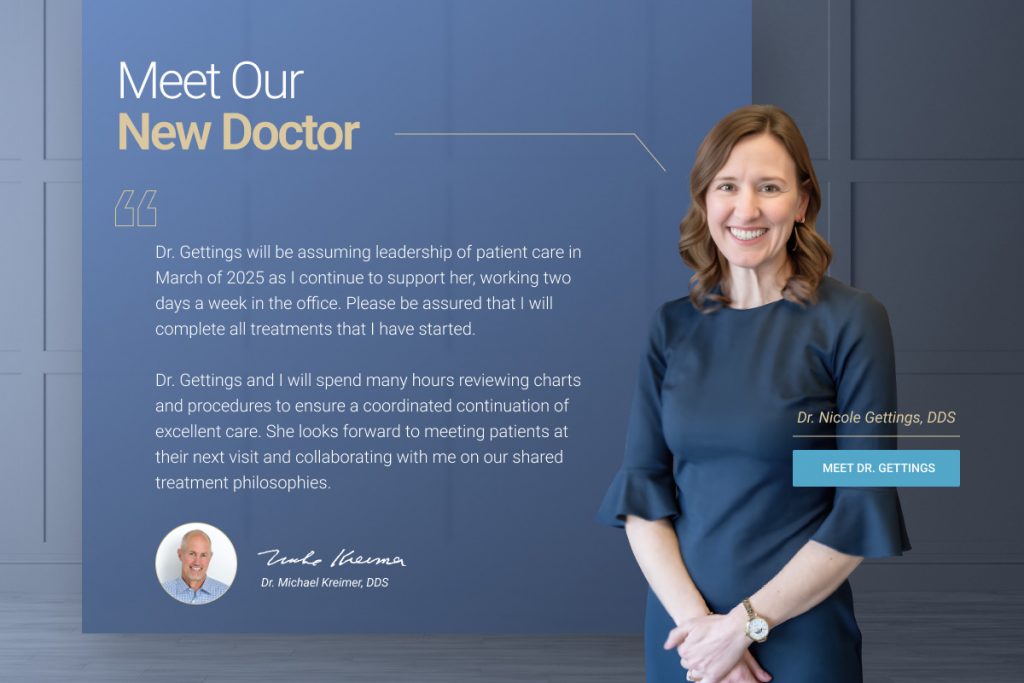Your Alternative Root Canal Treatment Options
While root canal treatment is often a successful treatment option for infected teeth, some people may be hesitant to undergo the procedure due to fear or discomfort. Fortunately, there are alternative treatments available for root canal therapy.
Learn more about your endodontic treatment options with our Loveland, OH, dentist. If you have any questions or are dealing with severe tooth pain, call our dental office today at (513) 677-3656.
Benefits of Alternative Root Canal Treatments
Some of the benefits of alternative treatments include:
- Preservation of Natural Teeth: One of the primary benefits of alternative treatments is that they allow patients to preserve their natural teeth. This is particularly important for patients concerned about the aesthetic and functional consequences of tooth loss.
- Reduced Risk of Complications: Alternative treatments are generally less invasive than root canal therapy, which means there’s a reduced risk of complications such as pain, swelling, and infection.
- Cost-Effectiveness: Alternative treatments can be less expensive than root canal therapy, particularly if multiple teeth require treatment.
- Faster Recovery Time: Because alternative treatments are less invasive, patients generally experience a shorter recovery time and can resume their normal activities sooner.
- Lower Risk of Root Fracture: Root canal therapy can weaken the tooth and increase the risk of root fracture. Alternative treatments can help preserve the strength of the tooth and reduce this risk.
- Greater Patient Comfort: Alternative treatments can be less uncomfortable for patients than root canal therapy, which may involve multiple appointments and more extensive treatment.
Alternative treatments may not be suitable for all patients or all types of dental conditions. Our Loveland dentist can help you determine the most appropriate dental treatment option.
Root Canal Alternatives
Apicoectomy
An apicoectomy is a surgical treatment option for teeth with persistent infections after root canal therapy or a hidden root canal anatomy that wasn’t treated during the initial root canal. During the dental procedure, your dentist will remove any infected tissue to prevent further infection. An apicoectomy may be recommended in cases where retreatment of the root canal therapy is not possible or is unlikely to be successful.
Pulp Capping
Pulp capping is typically used when the dental pulp or root cavity has been exposed but has not yet become infected. Your dentist will place medicated material over the exposed pulp in an attempt to stimulate the growth of new dentin and protect the healthy pulp from further damage or infection. This treatment can be an effective alternative to root canal treatment for some patients, particularly those with less extensive damage to the tooth.
Tooth Extractions
Another alternative treatment is tooth extraction. This procedure involves removing the affected tooth entirely. While tooth extraction may seem extreme, it can be an effective treatment option for dental infections.
After tooth extraction, your dentist may recommend tooth replacement options, such as a dental bridge or a dental implant.
Regenerative Endodontics
Regenerative endodontics is an emerging field in dentistry that focuses on the regeneration of dental tissues, particularly the pulp-dentin complex, to restore the functionality and vitality of damaged or infected teeth. It involves the application of tissue engineering principles and regenerative medicine techniques to promote the natural healing and regeneration of dental pulp, dentin, and other surrounding tissues.
Partial Pulpotomy
For those with severe tooth decay but where the root is still developing, a partial pulpotomy might be appropriate. In this procedure, the decayed part of the dental pulp is removed, and medication is placed to preserve the health of the remaining pulp and stimulate root development.
Frequently Asked Questions
Can an infected root canal be cured naturally?
No. It isn’t possible to cure an infected root canal naturally. Once there’s an infected dental pulp, the only way to effectively treat the infection is to remove the affected tooth pulp and perform root canal therapy or an alternative treatment.
Are extractions more cost-effective than root canal treatments?
In some cases, tooth extraction may be more cost-effective than root canals, particularly if the tooth cannot be saved or if the cost of root canal therapy is higher than the cost of extraction. Consider the long-term consequences of tooth loss and the potential need for tooth replacement options such as dental implants or bridges.
How long can you leave a tooth that needs root canal treatment?
It’s generally not recommended to delay treatment for a tooth that requires root canal therapy. The longer the infection or damage is left untreated, the more extensive and costly the treatment may become.
Delaying treatment can increase the risk of complications such as pain, swelling, and infection. If you’re experiencing symptoms such as tooth pain, sensitivity to hot or cold, or swelling around the affected tooth, seek prompt dental care.
Treat Infected Teeth the Non-Traditional Way
There are several alternative treatments to root canal therapy, including pulp capping and apicoectomy, which may be appropriate for certain patients depending on the individual case. While these alternative treatments can be effective in some cases, it’s important to remember that root canal therapy remains the standard of care for treating infected or damaged dental pulp.
Contact our dentist in Loveland by calling (513) 677-3656 to learn more about treatment options. Our dental practice welcomes patients from Murdock, Landen, Mason, Reading, and beyond.



